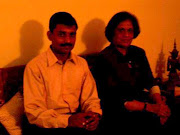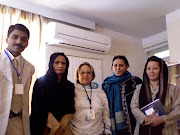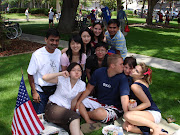Sharnarthi Apne Desh Mein? ? A Film by Ashok Pandit, an ethnically cleansed refugee, highlights the circumstances under which Kashmiri Hindus had to leave their homes, the atrocities inflicted upon Kashmiri Hindus, how Kashmiri Hindus are living as ?Invisible Refugees? in their own country and the role of terrorists in this ?Ethnic Cleansing.? Ethnic tensions and conflict have caused dislocations of people in Kashmir both internally and across the borders. The reasons that gave rise to displacements include armed conflicts, human rights violations, economic underdevelopment and other failures of governance. The displaced people represent almost all the major communities in the valley ? Pandits (Hindus), Muslims, Buddhists and even Sikhs.
The Kashmiri Pandit community, with 5000 years of recorded history with sages, poets, historian, philosophers, artists, and lovers of nature and exotic art, has contributed to various branches of science, learning, art and architecture, thus enriching Indian civilization. They have contributed to the Indian freedom struggle and in shaping the nations pluralistic democracy and secularism. In 1947, according to census figures, there were 15 percent Kashmir Pandits in the Valley. In 1981, there were about 5 percent, and in 1991, only around 0.1 percent. 99.9 percent of this community had to flee the Valley due to concerted terror tactics of outside forces, executed through militants and mercenaries. The cruelty inflicted upon them by the militants took the form of attacks, molestations, kidnappings, gang rape of women, and mass massacres of men, women, children and even infants.
Therefore the right term to describe these Kashmiris is not migrants but ?displaced? people. Migrants willingly shift from one place to another while the ?displaced? are forced to leave their homes. In this case, the Pandits have settled down in Jammu, Delhi and neighbouring states. They demand several things like refugee status, merger of migrant colleges with regular college, drawing up inventories of migrant properties, and recruitment of migrant unemployed youth.
President APJ Abdul Kalam, in his recent visit to Kashmir has held out an assurance to members of the uprooted Kashmiri Pandits community that the Government has undertaken to effect their honourable return to their homeland, Valley. He addressed the gathering of Kashmiri migrants and displaced school children at Muthi Migrant Camp in the Valley, and said that the Centre and State Government were already working in this regard and assured the members of the displaced community that he will use his good offices to bring satisfaction to the community.
Migrants believe that, if the government of India officially recognizes them as ?internally displaced persons,? they would receive the protection and assistance often provided to internationally recognized refugees. The only difference between a refugee and an internally displaced person is that the displaced person is a refugee in his own country, whereas the refugee is in another country.
Most of the displaced Pandits said that they wanted to return home, but could only do so if the situation there changed significantly and their security was assured. A displaced Kashmiri in New Delhi said, "The government wants us in Kashmir, regardless of the [security] situation there, because it wants the world to think that the situation in Kashmir is normal." Some displaced persons advocate the creation of a new, separate state for Kashmiri Pandits, somewhere in India. The camp leader in one of the Jammu camps said, "If we can't return, then the government should create a separate state for us.? The President assured that their charter of demands submitted to him by the displaced community would be discussed with the Chief Minister, Mufti Mohammed Sayeed, the Central Government and the Prime Minister, Mr Atal Bihari Vajpaee before his next visit to the border state.
Regarding cash relief, he said that the matter was under the Government?s active consideration. He admitted that construction of tenements for the community is called for. He also assured that the migrants would be accorded internally displaced persons status. The President was greatly touched by the plight of the displaced people. "You have been uprooted from your homes and hearths." Citing an English couplet, he said where there is love in the heart, there is beauty in character and harmony in the home.? When you have harmony in the home, naturally there will be harmony and peace in the nation, he added. |
Wednesday, March 15, 2006
Kalam assures peaceful return to Kashmiri Migrants
Subscribe to:
Post Comments (Atom)












No comments:
Post a Comment